South Africa’s ex-president Zuma, appears in court to face corruption charges
No Comments 5540 Views | by zeegee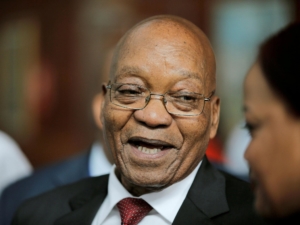
A former South African president, Jacob Zuma, appeared in court on Friday to face corruption charges relating to a $2.5 billion arms deal.
The 75-year-old, whose scandal-plagued nine years in office were marked by economic stagnation and credit downgrades, faces 16 charges including fraud, racketeering and money laundering.
Mr Zuma denies any wrongdoing and is challenging the decision to prosecute the case, a dramatic development on a continent where political leaders are rarely held to account for their actions before the law.
Wearing a dark suit, a smiling Mr Zuma waved to crowds of supporters and reporters as he mounted the steps of the High Court in Durban shortly before 0700 GMT.
The speed with which prosecutors have booked his day in court is a sign of the loss of control Mr Zuma has suffered since his successor, Cyril Ramaphosa, became head of the ruling African National Congress (ANC) in December.
However, Mr Zuma still retains some popular support, especially in his home province of KwaZulu-Natal, where the case is being heard.
Heavily armed police in riot gear lined the square outside the court, as thousands of Mr Zuma’s supporters gathered to express solidarity with a leader they say is the victim of a politically motivated witchhunt.
Marchers, many clad in the distinctive yellow, green and black of the ANC, carried placards reading “Hands off Zuma” and performed the high-stepping toyi-toyi protest dance made popular in South Africa’s decades-long struggle against apartheid.
Businessman Siya Khoza said he admired Mr Zuma’s determination to bring in economic policies that he said were designed to spread the wealth in what remains one of the world’s most unequal societies.
“Whatever happens we will still support Zuma because we believe he brought us radical economic transformation and we still believe that him being in the ANC he will push for it,” said Khoza, wearing a waistcoat emblazoned in
ANC colors.
Mr Zuma’ son, Edward, told supporters at nearby park where several thousand people held an overnight vigil that his father was not worried.
“I would want to believe that as an innocent man, he is definitely not worried,” the domestic News24 agency quoted Edward Zuma as saying.
Mr Zuma, who was forced to resign by the ANC last month, was at the center of a 1990s deal to buy billions of dollars of European military hardware to upgrade South Africa’s post-apartheid armed forces.
The deal was mired in scandal and controversy from the start, with many inside and outside the ANC questioning the spending given the massive social issues, from health to education, Nelson Mandela’s party had to address after coming to power in 1994.
Fallout has cast a shadow over South African politics ever since. Mr Zuma was deputy president at the time. Schabir Shaikh, his former financial adviser, was found guilty and jailed in 2005 for trying to solicit bribes for Mr Zuma from a subsidiary of French arms company Thales.
The company is facing charges in the same case.
Charges against Mr Zuma were filed but then set aside by the National Prosecuting Authority shortly before he successfully ran for president in 2009.
The charges were re-instated in 2016.
Since his election nine years ago, his opponents have fought a lengthy legal battle to have the charges reinstated.
FFK slams Arewa Pastors for visiting and endorsing President Buhari
No Comments 550 Views | by zeegee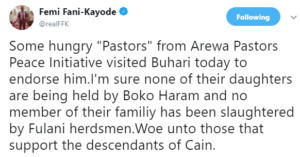
Yesterday, Northern pastors under the aegis, Arewa Pastors Peace Initiative, visited President Buhari at the state house in Abuja and endorsed him for a second term.
Nigerian Senate rejects N800m security vote for Inland Waterways
No Comments 583 Views | by zeegee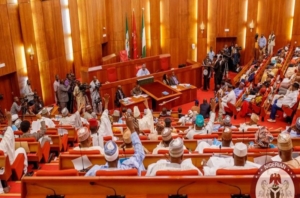
The Nigerian Senate, yesterday, queried the sum of N800 million budgeted for the purchase of security equipment by the Nigeria Inland Waterways Authority (NIWA).
The lawmakers made its position to the Acting Managing Director, Danladi Ibrahim, when he appeared before the Senate Committee on Marine Transport to defend the agency’s 2018 budget.
The panel wondered why the agency requested for N800 million in the 2018 budget for the purchase of security equipment, which was the same amount it received in the 2017 budget for the same purpose.
The committee noted that out of the N800 million, the agency had spent N790 million in 2017, which amounts to over 90 per cent of the appropriated sum.
Chairman of the committee, Senator Ahmed Sani Yerima, noted that the agency failed to provide details and specifications of how it plans to spend the money it requested for in the 2018 budget.
Yerima noted: “You said you want to do something; the same amount last year, the same amount this year. There are no details, no explanations, no form of specification whatsoever. This is unacceptable.”
Another member of the committee, Senator Mohammed Hassan, said Ibrahim and his team should be asked to go back and do the right thing.
He said: “You are doing construction, the locations are not known. You have a project of N1.2 billion which you requested for in 2017, you have received over 90 per cent, you requested for the same amount in 2018. The right thing should have been for you to request for the balance.”
On his part, NIWA boss told the committee that the security equipment was not meant for one place alone. He also said the 2017 approval was the first time the authority was receiving fund for capital projects.
The committee, thereafter, asked the representatives of the agency to go back and do the right thing.
President’s $1bn approval not Boko Haram fund – Presidency
No Comments 5578 Views | by zeegee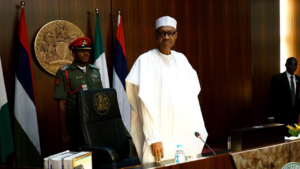
President Muhammadu Buhari’s Special Adviser on Media and Publicity, Femi Adesina, has disclosed that the president’s recent approval of the release of $1 billion for the purchase of military equipment is not just to fight Boko Haram.
After presiding over a meeting with the National Security Council at the Presidential Villa on Wednesday, April 4, 2018, the Minister of Defence, Mansur Dan-Ali revealed that the president approved the release of the fund which was withdrawn from the Excess Crude Account by the Federal Government.
“I can inform you that of recent, our leader, President Muhammadu Buhari, gave approval for the purchase of more equipment for the military, worth $1 billion,” Dan-Ali said.
While speaking on Channels Television on Thursday, April 5, 2018, Adesina said the fund is not just to intensify the military’s fight against Boko Haram but to fight other forms of insecurity in the country.
He also insisted that contrary to what the critics are saying, President Buhari followed due process in approving the release of the fund.
He said, “It couldn’t have been done before the approval, the approval had to come like it came and then Mr President having approved it, sends a communication to the National Assembly. That’s the right procedure.
“That fund is not meant to battle Boko Haram, it is not Boko Haram fund; it is fund to battle insecurity. Boko Haram is not the only form of insecurity we have in Nigeria.
“As we speak now, the communication to the National Assembly is about ready. Those who have been venting spleen and flexing muscles over the matter should just have bothered to make enquiries from the Senior Special Assistant to the President on National Assembly Matters.
“There is not timing that is not good for security. Every time is security time. Those who are reading political meanings to it, it is just very unfortunate they play politics with everything and they will play politics with the very life of Nigerians which is very bad.
Controversy has trailed the release of the fund as the opposition People’s Democratic Party (PDP), and especially Ekiti State governor Ayodele Fayose, has kicked against the process that led to the withdrawal of the fund.
While the Federal Government has insisted that the Nigeria Governors Forum (NGF) had approved the withdrawal of the fund in December 2017, Fayose said he had no input in the decision.
The Buhari-led government has been accused of trying to loot the $1 billion to fund the president’s re-election bid in next year’s election as they failed to see the reason in using the enormous amount to fight a terrorist group that the government has claimed several times has been defeated.
NEMA board suspends six (6) senior directors
No Comments 5461 Views | by zeegee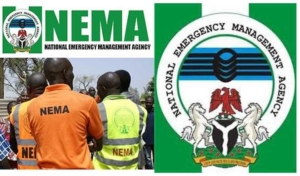
The Board of the National Emergency Management Agency (NEMA) has suspended six directors of the agency indefinitely.
The suspension of the affected officials by the newly-inaugurated board was in connection with the ongoing probe of the finances of NEMA by the Economic and Financial Crimes Commission.
The financial years being reviewed by the anti-graft agency are from 2011 to 2015.
Those placed on suspension are the Director of Finance and Accounts, Akinbola Hakeem Gbolahan; Ag. Director, Special Duties, Umesi Emenike; Director, Risk Reduction, Mallam Alhassan Nuhu; Pilot in-charge Air Ambulance and Aviation Unit, Mamman Ali Ibrahim; the Chief Maintenance Officer, Ganiyu Yunusa Deji; and the Director of Welfare, Kanar Mohammed.
The EFCC had in a report to the Presidency recommended the disciplinary measures in order to enable it conduct unhindered investigation and have access to vital records.
Based on the EFCC’s recommendation, the Board of NEMA approved the suspension and directed the management to give effect to its decision.
The Board also mandated the management of NEMA to cooperate fully with the EFCC in the ongoing probe.
South Korea’s Former President, Park Geun-Hye Jailed 24 Years For Corruption
No Comments 5474 Views | by zeegee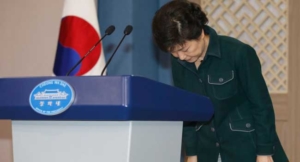
A South Korean court on Friday sentenced the impeached President Park Geun-hye to 24 years in jail with a fine of 18 billion won (17 million U.S. dollars) for corruption.
The court found Park guilty of bribery over a scandal that exposed webs of corruption between political leaders and the country’s conglomerates.
The court ruled that Park colluded with her old friend, Choi Soon-sil, to receive tens of billions of won from major conglomerates such as Samsung and Lotte to help Choi’s family and fund non-profit foundations owned by her.
Park, 66, has denied wrongdoing and was not present in court.
Prosecutors initially sought a 30-year sentence and a 118.5 billion won (112 million dollars) fine for Park, after indicting her on charges that included bribery, abuse of power and coercion.
NAF declares Buhari as the only northerner suitable for 2019 presidential candidacy
No Comments 3981 Views | by zeegee
A pro-democracy group, the Northern Alternative Forum, NAF, has declared that President Muhammadu Buhari remained the best presidential candidate from the region ahead of the general 2019 elections.
Addressing newsmen in Abuja, the National Chairman of NAF, Mallam Gidado Ibrahim said no amount of campaign of calumny against the President will stop Buhari from seeking re-election to continue his quest to return the country to path of glory.
A pro-democracy group, the Northern Alternative Forum, NAF, has declared that President Muhammadu Buhari remained the best presidential candidate from the region ahead of the general 2019 elections.
Addressing newsmen in Abuja, the National Chairman of NAF, Mallam Gidado Ibrahim said no amount of campaign of calumny against the President will stop Buhari from seeking re-election to continue his quest to return the country to path of glory.
Mallam Ibrahim, who said there was no better candidate than President Muhammadu Buhari for now, advised some Northern elements searching for a replacement for Buhari from the region ahead of the 2019 polls to dump the idea.
According to him, “after reviewing the outcome of meetings held recently by the Northern Elders Forum, NEF, and other interest groups in the North, we in Northern Alternative Forum have come to the conclusion that shopping for a credible presidential candidate other than President Muhammad Buhari will only come to a dead end.”
APC not moved by Abe’s crossover to PDP—Secretary
No Comments 558 Views | by nadum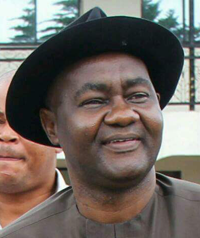
THE All Progressives Congress, APC, in Rivers State has said that it will not be moved by what it claimed, yesterday, Read More…
BREAKING: Retired footballer George Weah elected Liberia’s president
No Comments 5394 Views | by nadum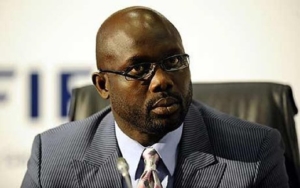
Former Monaco player, George Weah, has been voted president of Liberia after clinching 12 of the 15 counties in the west African country. Read More…
Ekiti LG chairmen drag Malami, 36 governors to court over $1bn fund for insurgency
No Comments 575 Views | by zeegee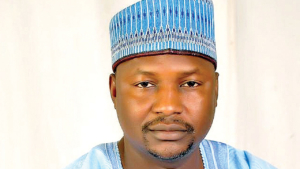
Sixteen Local Government Chairmen in Ekiti State have sued the Attorney General of the Federation, Abubakar Malami, and Governors of the 36 states over the approval of the sum of $1billion from the Excess Crude Account of the Federation for the fight against insurgency.
In the suit marked FHC/ABJ/CS/1264/17, the council chairmen asked the Abuja division of the Federal High Court to declare the approval of the sum of $1 billion by the 36 state governors as unlawful and therefore, null and void.
The suit which was filed on Tuesday at the registry of the court by counsel to the plaintiffs, Ola Olanikpekun (SAN) also listed the Revenue Mobilisation Allocation and Fiscal Commission as a defendant.
The Chairmen include: Deji Ogunsakin (Ado LGA); Bola Alonge (Ikere LGA); Lanrewaju Omolase (Ekiti South West LGA); Dapo Olagunju (Irepodun/Ifeelodun LGA); Samuel Adeniyi (Ekiti East LGA); Olumide Falade (Ise/Orun LGA); Sade Akinrinmola (Gbonyin LGA); Tayo Ogundare (Oye LGA); Chief Ayodeji Arogbodo (Ido/Osi LGA) and Taiwo Oguntuase (Emure LGA).
Others are: Kolawole Omotunde (Ekiti West LGA); Bolaji Jeje (Efon LGA); Adesola Adeyanju (Ikole LGA); Ganiyu Bakare (Ilejemele LGA); Adeniyi Adebayo (Moba LGA) and Abiodun Dada (Ijero LGA).
The suit which is yet to be assigned to any judge for adjudication is supported by a 14-paragraph affidavit deposed to by Everest Igweokolo, a litigation executive in the law firm of Ola Olanikpekun.
The Chairmen are demanding an “order of injunction restraining the Federal government and the 36 states governors, their agents, servants, privies, representatives in interest, howsoever called and by whatsoever name designated, from giving effect to the appropriation and/ or approval of appropriation of the sum of $1 billion or any other sum whatsoever, from the Excess Crude Account of the Federation.”
The Council Chairmen also asked the court for “a declaration that they are entitled to full share of all revenue accrued and accruable to the Federation Account and the Federation Excess Crude Account or any other Account whatsoever operated by and for the Federation of Nigeria, including the sum of $1,000,000,000 (which was purportedly approved for the expenditure of the Federal Government by the 1st-37th defendants at the 83rd, National Economic Council meeting of December 15, 2017, in accordance with section 162 of the 1999 constitution and the provisions of Allocation of Revenue (Federation Account) Act.”
LEYII KWANEE HAMMERS KINSMAN JOHNY BAZIA AND SPEAKER FOR LOBBYING AT VALEDICTORY SESSION, DECRIES HORSE-TRADING
No Comments 1295 Views | by nadum
Rt. Hon. Leyii Kwanee, former Deputy Speaker of Rivers State House of Assembly, Friday, slammed a former colleague and Read More…
2017 Anambra Governorship Elections – APGA’s Willie Obiano defeats PDP and APC to win all 21 LGA’
No Comments 587 Views | by nadum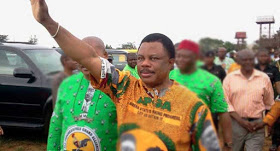
APGA’s Willie Obiano yesterday defeated PDP and APC to win all 21 local governments in Anambra state at the 2017 Anambra Governorship Elections. Read More…
Ijaw Project endorses Dumo Lulu-Briggs for 2019 – By Uche Woke
No Comments 476 Views | by nadum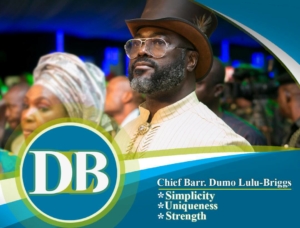
The Ijaw Project, an organization of resolute minds who are desirous to effect socio-political changes in Rivers State, has endorsed Chief Barrister Dumo Lulu-Briggs as its governorship candidate for the 2019 elections. Read More…
Biafra: The faith of Kanu’s sureties if he is not in court on Tuesday
No Comments 375 Views | by zeegee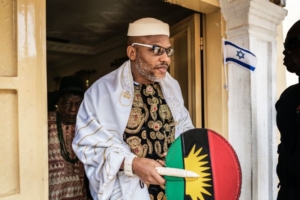
The Sureties of the leader of the Indigenous People of Biafra, IPOB, Nnamdi Kanu, are expected to provide him in court tomorrow.
Nnamdi kanu’s whereabouts is yet to be known following the invading of his home in Umuahia by men of the Nigerian army, under the Operation Python Dance II.
Fate of Kanu’s sureties will top one of the issues Justice Binta Nyako of the Federal High Court Abuja, will decide in court tomorrow in one of the applications initiated by the federal government.
Recall that the federal government in one of the applications has asked the court to revoke the bail granted to Kanu in April on the grounds of ill-health which appeared to have been allegedly breached by the IPOB leader since he was allowed home on bail.
Kanu may have put his sureties on imprisonment path should he fail to show up in court tomorrow for the hearing of the felony case against him.
The Federal Government is arraigning Kanu and three others before a Federal High Court in Abuja on a five count criminal charge bordering on treasonable felony.
Kanu’s sureties were the Chairman of the Senate’s South East Caucus, Eyinnaya Abaribe; a Jewish priest, Immanuu-El Shalom and an accountant and Abuja resident, Tochukwu Uchendu.
However, speaking on the legal implication of Kanu’s failure to appear in court on the next adjourned date, Special Assistant to President Muhammadu Buhari on Prosecution, Chief Okoi Obono-Obla, told New Telegraph that Kanu has violated all the conditions prescribed by the court and government had sought the revocation of his bail.
He said, “Following the military exercise carried out by the military in Umuahia, Abia state and the subsequent proscription of IPOB, Nnamdi Kanu, has not been seen and may have gone underground.
“So, it is not likely that he will appear in court on the next adjourned date for fear of being arrested by the police or security agencies.
“Kanu had sureties that entered into recognizance or signed bail bonds as ordered by the court that led to his release.
“The position of the law as provided under Section 173 (1) of the Administration of Criminal Justice Act, 2015, is that, a defendant whom recognizance was entered on his behalf and who is subsequently released on bail is bound to appear before the court at every time and place to which during the course of the proceedings, the hearing may from time to time be adjourned.
“It follows that if Kanu fails to appear before the Federal High Court on the next adjourned date, the judge will likely order a warrant for his arrest.
“The implication of the failure of Kanu to appear in court on the next adjourned date on those who stood sureties for his recognizance is that his recognizance shall be forfeited.”
CHIEF BARR. DUMO LULU-BRIGGS CONGRATULATES CHIEF SENATOR ANDREW UCHENDU
No Comments 416 Views | by nadum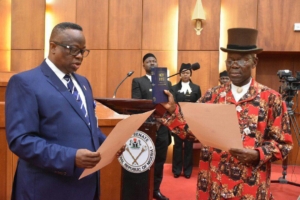
Chief Barr. Dumo Lulu-Briggs has congratulated the distinguished Senator Andrew Igbonule Uchendu on his swearing in as the Senator representing the good Read More…
BREAKING: INEC officials storm NASS to serve Melaye recall notice
No Comments 294 Views | by nadum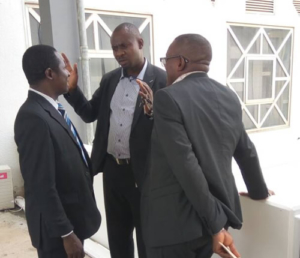
Officials of the Independent National Electoral Commission on Tuesday arrived the National Assembly Complex to notify the embattled lawmaker representing Kogi West Senatorial District, Read More…
Court dismisses Melaye’s suit, asks INEC to continue recall process
No Comments 326 Views | by nadum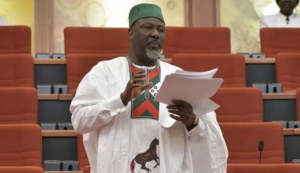
A Federal High Court in Abuja on Monday dismissed the suit by Kogi West Senator, Dino Melaye, challenging the validity of the process of recalling him by his constituents. Read More…
Failed Representation or Misrepresentation?
No Comments 517 Views | by zeegeeIt was a tragic denouement the other day when, after so much expectation, Nigeria’s Senate and House of Representatives, expected to be an assemblage of statesmen, let down the nation by throwing away the chance to give the people a constitution that would deepen democracy, good governance and trigger a real development of the country. Sadly, the legislators elevated lack of vision to ignoble heights and turned their supposedly hallowed chambers into a gas chamber for visionary ideas. They trivialised the majesty of democracy as they threw away the finest essence of federalism that Nigerians crave and need very badly.
But if members of the upper house of Nigeria’s bicameral legislature especially cannot exercise discipline to gauge the mood of the nation, then what is the value of representation in a constitutional democracy?
Specifically, both chambers of the National Assembly, the Senate and the House of Representatives, had surprisingly voted against the bill to alter the 1999 Constitution to devolve more powers to the states. They also voted to retain the obnoxious Land Use Act and paradoxically voted for “local government autonomy” in their twisted thinking on federalism.
In response, the people have been wailing, wondering what manner of representatives they have, men and women who are working against the interest of their people and manifesto of the ruling party that dominates the same Assembly.
Curiously, the lawmakers’ voting pattern reflected a failure of consensus building abilities of political leaders from the north and south and indeed advertised all the geo-political divisions in the polity. The voting profile also exposed the poverty of ideas on the part of leaders and aspirants who have been mouthing support for federalism or restructuring without engaging with the federal legislators before their tragic voting.
What is worse, there still appears to be no national consensus on how to develop Nigeria when politicians of southern and northern extractions meet to vote. This is unfortunate in the extreme!
Hence the tragedy is that from what just happened in the federal legislature, the campaign for restructuring remains largely a southern Nigeria affair. While the virulent attacks on the federal legislators have been very loud and ceaseless in the south, prominent opinion leaders from the north have remarkably ignored the issue of devolution of powers while commenting on other aspects of the proposed amendment.
With members voting along geo-political lines, the grave implication is that Nigeria remains a country with sharp divisions on almost every political issue. Of course, the nation’s leaders in Abuja and the 36 state capitals seem not interested in nation building, hence the agitation for restructuring appears limited to a section of the country, a result of deep distrust, suspicions and misunderstanding.
Certainly, there is a gross misconception of the idea of restructuring and why it is the only way to Nigeria’s greatness. The agitation of the Indigenous Peoples of Biafra (IPOB) for secession, the campaign for resource control by the militants in the South-south creeks and demand for fiscal federalism by many in the south-western flank are all symptoms of a federal system that is not structured as it should be and serves little useful purpose for its component parts.
Which is why this newspaper has repeatedly harped on the many benefits of federalism to all Nigerians. Of course, the nation’s political leaders are to blame for failure to do enough to let their people know the essence of this amendment agenda. The federal lawmakers let the nation down at a time when, more than any other issue, the call for restructuring has gained appeal across almost all shades of interest.
Pro-restructuring campaigners have emphasized an unassailable fact that the Federal Government has more powers than necessary, domineering control of resources as well as too large a share of national revenue. This is where devolution of powers to the states is a desideratum. The current system holds Nigeria down and encourages indolence as well as corruption. Apart from affecting the efficiency of the Federal Government, given that it has too much power and control over too many things it cannot manage, it is also skewed against the states in terms of resources within their control and accessible revenue.
This is what has reduced all the states to beggarly status as they go to Abuja, begging bowls in hand every month, for revenue sharing based on certainly inequitable criteria.
Debates on these and other issues should have been robust in the legislative chambers and town hall meetings before those votes were casually and carelessly cast in the legislature.
There is no federation on earth that shares revenue of the nation every month to federating units from the nation’s capital as Nigeria currently does. This is what has underdeveloped Nigeria and made it a country where the central government makes decisions for 36 states and 774 local government areas in regions that have different orientations and divergent needs. This is the blight on the constitution the military establishment that has ruled the country for most of the country’s 57 years of independence bequeathed to Nigeria in 1999.
The people, contrary to the first line of the extant constitution that says “we the people,” did not have any input into the complicated unnecessarily wordy and foggy constitution.
Amending provisions in that kind of law of the land made by the military requires considerable thoroughness, seriousness and inclusiveness. A much easier approach is to reject the entire document and work out something fresh and more agreeable.
The so-called representatives of the people should have been guided by the reproach Nigerians carry, having failed for 51 years out of the 57 years after independence. They should have thought of a re-birth of Nigeria and not a cosmetic repair and be instructed by the fact that the only period of meaningful progress was that immediately after independence when federalism was in place in letter and in spirit, until 1966 when the military came in unnecessarily and went on decades-long distortion of Nigeria’s real essence.
Since 1966, it has been ruination or damnation all the way as a result of a warped federal system and bad leadership. For example, the Federal Government in its centralised form took over everything and ruined it. It seized Nigeria’s world-class universities, businesses, infrastructural facilities and other social amenities and they have all since been ruined through the fraudulent unitary government parading itself as a federal system, even with democracy in place!
More importantly, it is tragic that a governing party, the All Progressives Congress that promised restructuring of the polity in its manifesto, has been so broken and disorganised that it can hardly rally a National Assembly it controls to achieve a consensus on devolution of powers so well agreed upon at the Constitutional Conference of 2014. Suffice to say that Nigeria’s leaders, especially those in the national legislature need a moral rearmament at this point so they can always be conscious of their charge to serve the nation and not just to earn undeserved income, a situation that has put them in perpetual odium and, if you like, conflict with the people they represent. Their attitude has demonised political participation and representation.
With their conduct over the bid to return Nigeria to the path of a functional federation, they seem to have rejected statesmanship and opted for convenience and self-interest. That is a terrible disservice to the nation.
If nothing else, the least Nigeria deserves are amendments along the lines of the recommendations contained in the 2014 National Conference report. And the earlier the lawmakers re-visit this matter, the better for their individual and collective reputation as well as the future well being of Nigeria.
Credit — Vanguard News
PDP crisis: Party will emerge stronger reclaim power from Buhari in 2019 – Sheriff boasts
No Comments 437 Views | by Liz Ajala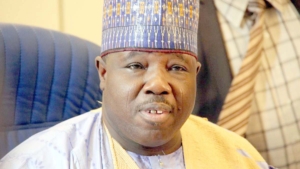
A loyalist to the National Chairman of the Peoples Democratic Party, PDP, Ali Modu Sheriff, Prof Wale Oladipo, has declared that the party will emerge stronger from its crisis to dislodge the All Progressives Congress, APC, in 2019. Read More…
Supreme Court Affirms Ikpeazu As Abia Governor
No Comments 417 Views | by Liz Ajala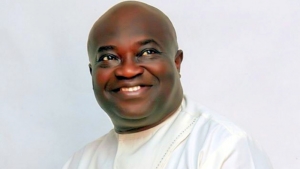
The Supreme Court has affirmed the election of Mr Okezie Ikpeazu as Abia State Governor. Read More…
BREAKING: Delta speaker, Monday Igbuya, impeached
No Comments 470 Views | by Liz Ajala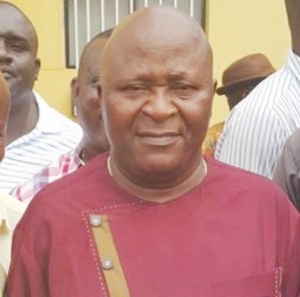
Delta State House of Assembly Speaker, Hon Monday Igbuya has been impeached. Read More…
Electoral Violence: Court Backs Wike, Declares Police Panel Illegal
No Comments 260 Views | by Liz Ajala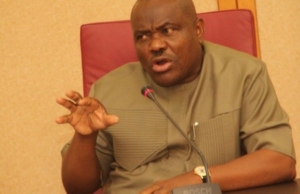
Justice Gabriel Kolawole of the Federal High Court Abuja has declared as illegal the 15-man probe panel constituted by the Inspector General of Police, Mohammed Idris, to investigate the violence that took place during and after the December 10, 2016, National and State Assembly rerun election in Rivers State. Read More…
Chibok girls: PDP faults prisoner swap deal
No Comments 293 Views | by Liz Ajala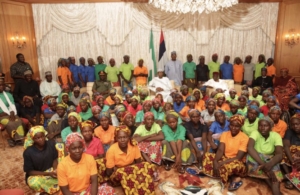
A faction of Nigeria’s main opposition People’s Democratic Party led by Senator Ahmed Makarfi Sunday criticised the prisoner swap deal that led to the release of another 82 Chibok girls on Saturday. Read More…
APC rubbishing me – Kwankwaso reacts to raid on brother’s house
No Comments 243 Views | by Liz Ajala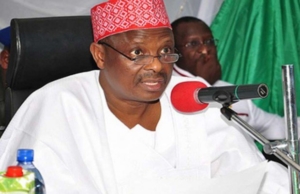
Former Governor Rabiu Musa Kwankwaso on Thursday condemned the search of his brother’s house in Kano by the police. Read More…
